30.08.2017 — Reports
Report Info-Day Sustainability
On the 27th of October 2016 numerous representatives of renowned companies came together to get updated on current developments, challenges and chances on issues around sustainability.
Agenda
- • Sustainability – Topic introduction and current status in the EU
• GOTS – Access and implementation
• No more „business as usual“: sustainable materials and holistic business models
• Redraft of the technical manual against air-pollution
• BVE³: monitoring of chemical usage and chemical emission in wet production
• Sustainability Reporting: status and current developments
• Social sustainability – moving away from do or die!
• Two pots are better than one! Sustainable development projects
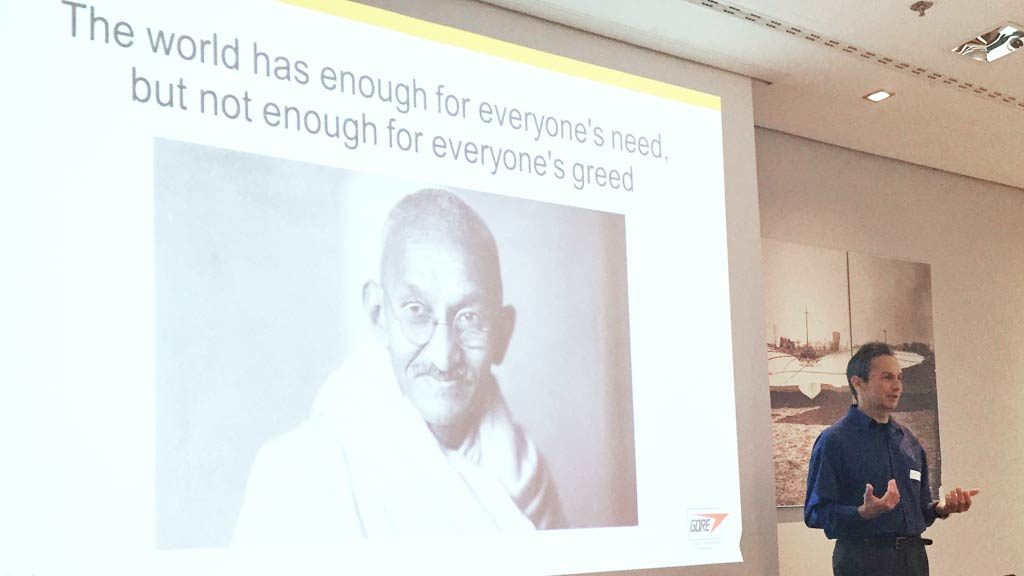
Presentation 1
Mr Hochrein, W.L. Gore & Associates GmbH, longtime leader of the DTB work-group „Sustainability“, explained in the first presentation oft he day the principles of sustainability as well as the perspective of the EU. In order to achieve „sustainability sustainably“, a shift towards contentment is necessary. He encouraged the audience to consider the traditional intersection of sustainability „socially, economically and ecologically“. In considerung purely the intersection one important aspect is being neglected: each factor can grow on its own. At the same time he emphasized the term „holistic nature as the corner stone of sustainability“. Before finally deciding on a solution, the product and its effects must be investigated on all levels; only then can sustainability be achieved.
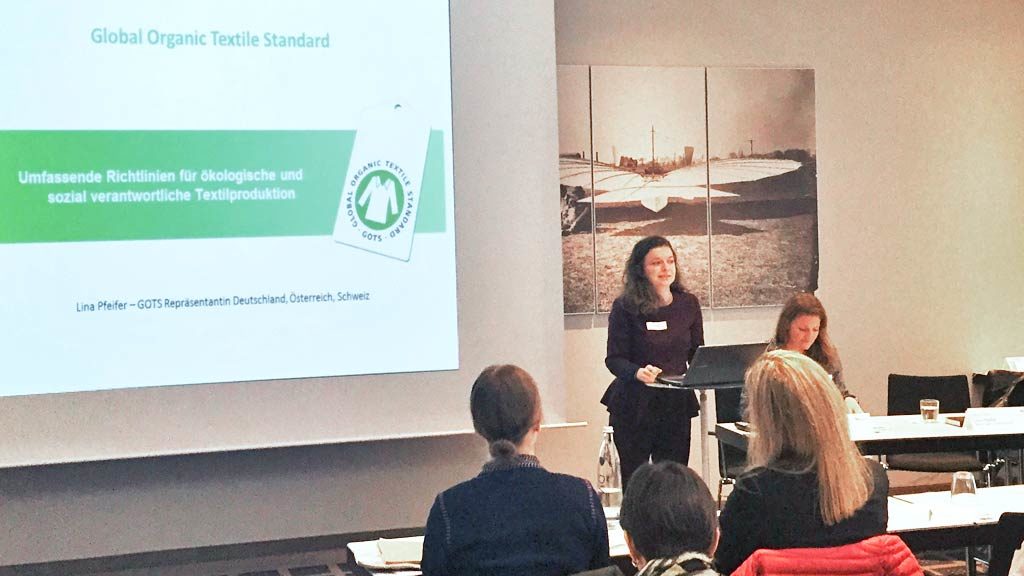
Presentation 2
Lina Pfeifer introduced the development of the GOTS – Global Organic Textile Standard (GOTS) – as well as the requirements regarding environmental and social criteria. One of the most important points to be considered is that all requirements have to be met in order to fulfil GOTS. The standard covers the production, packaging, labelling, trade and distribution of all textiles that consist of at least 70% natural fibres. An important criteria for GOTS ist hat the certification takes place including the whole value chain. The revision 4.0., which came into effect in March 2014, includes a minimum-inspection record for social standards. In order to support companies on their certification journey, the GOTS offers the „positive list“ tool.
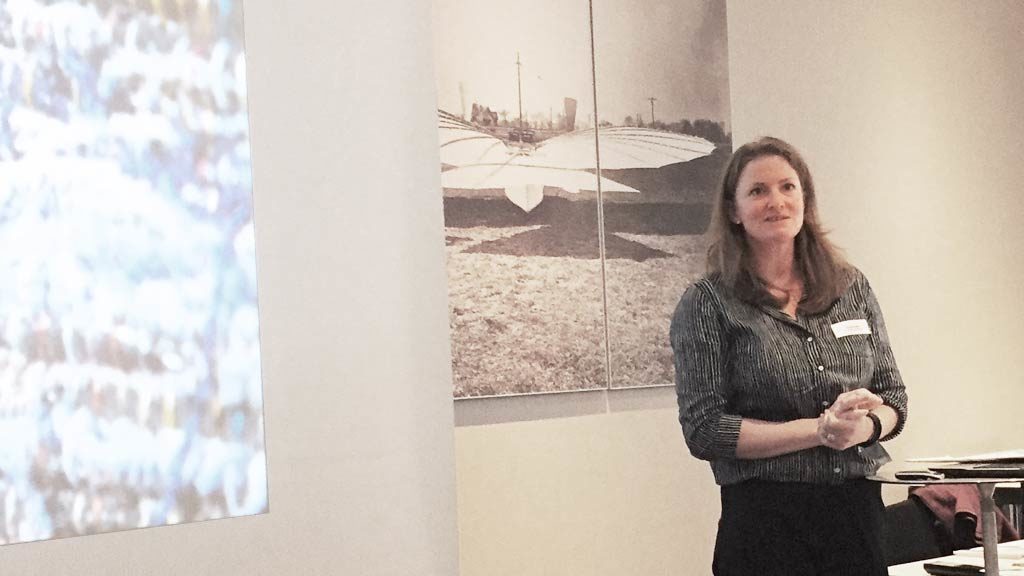
Presentation 3
The focus of Ms Seisl’s (Textile Exchange) presentation was the meaning of holistic business models, especially pointing out their advantages. These were nicely illustrated by examples of the supply chain, or better: a „supply network“. As an incentive for sustainable production the nature capital’s costs should be standing. It is worthy to note that saving 1 € at the wrong place can lead up to sevenfold reperation costs.
At this point it is crucial to mention the „Responsible Down Standard“, which enables the back-tracking of our supply chain and helps in confirming the products used by The North Face – from the breeding farm up tot he final piece of clothing. Equally important for the industry is the Responsible Wool Standard, which assures that certified farms can provide a back-tracking possibility.
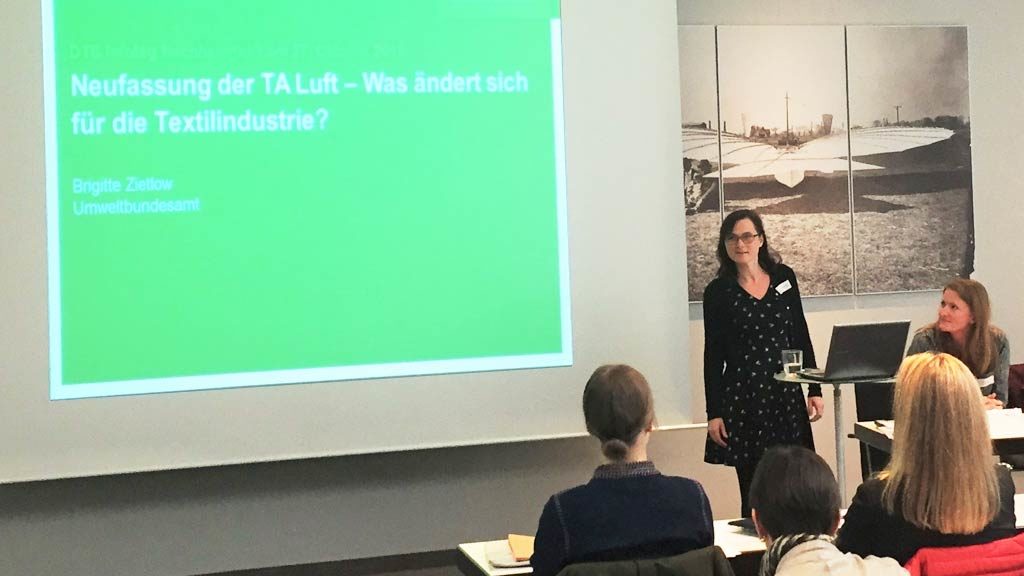
Presentation 4
The relevance and redraft of the TA for the textile industry was illustrated by Ms Zietlow (State Ministry for Environment). The central immission-control regulation creates nation-wide, mandatory demands for approval requiring facilities. Thus the redraft contains requirements for energy and charge materials. There are special regulations for textile finishing facilities, i.e. concerning formalaldehyde or structural and operational.
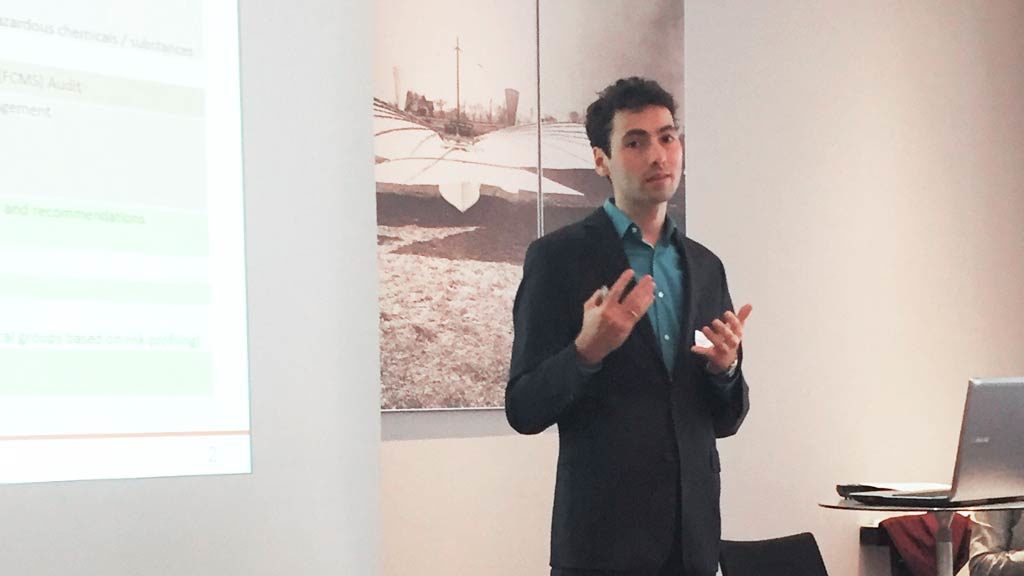
Presentation 5
Christian Blut introduced Bureau Veritas‘ new IT platform „Environmental Emission Evaluator“ (BVE³) which performs as a tool for a better understanding of the supply chain and used chemicals. BVE³ calculates realistic emission scenarios for chemicals per factory. Factories uplaod informations on the used chemicals onto the platform (amount, water usage, production). The input is then being calculated by Bureau Veritas and subsequently the water is being tested on used chemicals and detox conformity. Available data are summarized according to three indicees: Transparency Index, Greener Chemical Usage Index & Clean Emission Index).
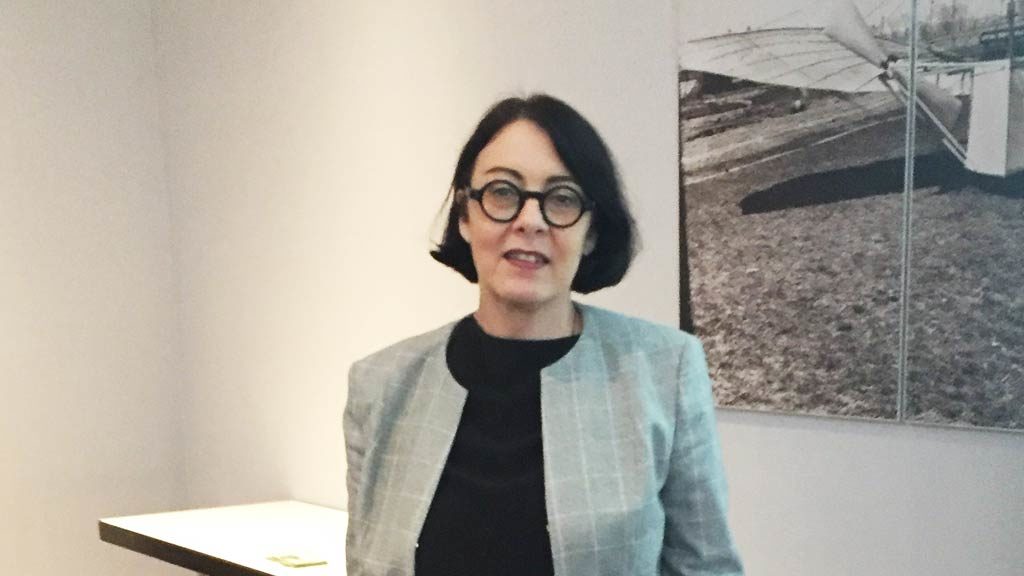
Presentation 6
Sabine Braun, akzente kommunikation und beratung gmbh, informed the participants about the current state of Germany’s sustainability reporting. A ranking of the 150 highest-selling companies in Germany illustrated that many already regularly report, while 72 have their own autonomous report system. There is still great need for improvement, especially concerning responsibility within the supply chain. Moreover, Ms Braun covered the Global Reporting Initiative and the development of reporting according to G4 up to Sustainability Reporting Standards. The new framework for this has been introduced on the October 17 2016 and will be coming into effect starting from 2018. Another focus of the presentation was set on the European CSR-reporting-duty which applies to capital-oriented companies, banks and insurance companies (min. 500 employees as well as a revenue of 40 mil. EUR), partnerships with limited liability and associations.
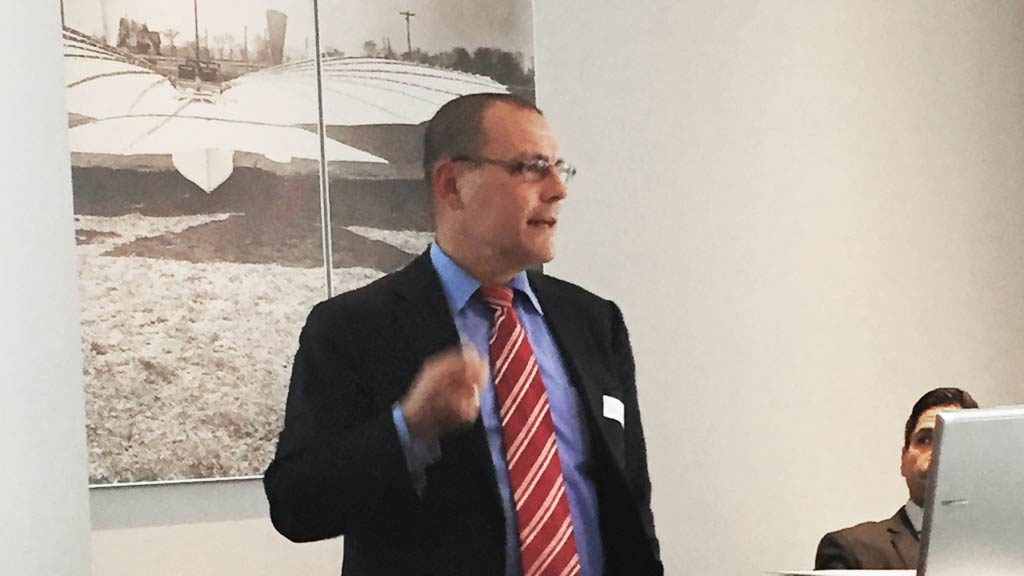
Presentation 7
Mark Temme examined the principle of „all or nothing“ in his presentation and analyzed the current risk-management model. With this model, also known as „pure audit-model“, a clear necessity of more transparency emerges, seeing as „non-transparency“ prevents the possibility to manage risks. Two possible ways of developing such a process by Elevate were presented to the participants:
1) Audit (+): this includes the direct cooperation with the factory: through an internal evaluation process the various levels of improvement can be determined and appropriate solutions can be set.
2) Conjunction between management-systems and audits: this operates directly at the management (in temporal stages: today – 1 to 3 years – 5 years) as well as a rating according to three risk degrees. Resulting from this, special audits can be explicitly derived.
Generally, a clear step from reactive (today) to proactive (future) is required. A positive impact resulting from the change from traditional towards a segmentation-approach is an adequate use of financial means.
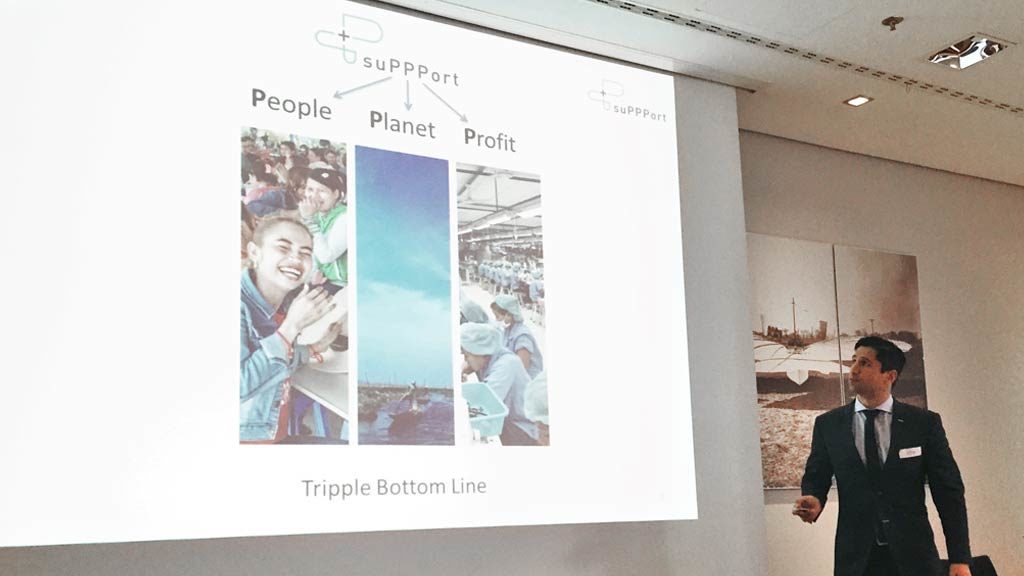
Presentation 8
The day was concluded by Mr Özdemir’s presentation on sustainable development projects and funding possibilites. Mr Özdemir, CEO of suPPPort ltd., a consulting company which specializes in sustainable development projects in Asia, illustrated the characteristics of a PPP-project as well as the roles and tasks of the single actors. In order to formulate a proposal, a lot of criteria have to be fulfilled. By means of many examples the diversity of projects that need funding was pointed out as well as the advantages and benefits resulting out of such a project for companies.